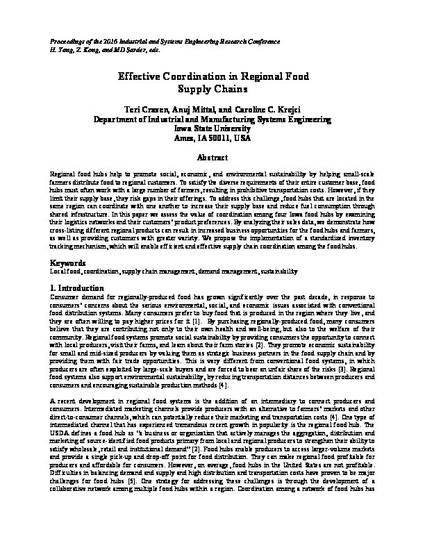
Regional food hubs help to promote social, economic, and environmental sustainability by helping small-scale farmers distribute food to regional customers. To satisfy the diverse requirements of their entire customer base, food hubs must often work with a large number of farmers, resulting in prohibitive transportation costs. However, if they limit their supply base, they risk gaps in their offerings. To address this challenge, food hubs that are located in the same region can coordinate with one another to increase their supply base and reduce fuel consumption through shared infrastructure. In this paper we assess the value of coordination among four Iowa food hubs by examining their logistics networks and their customers’ product preferences. By analyzing their sales data, we demonstrate how cross-listing different regional products can result in increased business opportunities for the food hubs and farmers, as well as providing customers with greater variety. We propose the implementation of a standardized inventory tracking mechanism, which will enable efficient and effective supply chain coordination among the food hubs.
Available at: http://works.bepress.com/caroline_krejci/12/

This is a published proceedings from the 2016 Industrial and Systems Engineering Research Conference. Posted with permission.